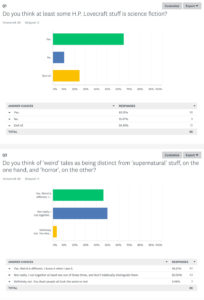Robin Hanson is catching it for this post. There is something so … elegant about such developments.
It was supposed to be a simple troll. If you think goods redistribution is a good idea (inequality = bad), you must be in favor of a bit of the old forced sexual redistribution. (Nudge, nudge, wink, wink.) Also: it’s gotta be just envy. “Their purpose seems to be to induce envy, to induce political action to increase redistribution.” “Two Kinds of Envy”. That’s the title. (This envy bit is going to be key. See below.)
Forced redistribution of sex out of envy sounds pretty rape-y, as you may notice. Of course it’s a bad argument. It’s easy to explain how and why one might favor redistribution but not rape. But in politics, if you’re explaining you’re losing. Having to argue for a ‘no rape included’ on your social welfare proposal kind of puts you on the rhetorical back-foot. I’m sure that was Hanson’s plan.
But then it backfired.
Even though Hanson is not himself proposing forced sexual redistribution – he’s merely making a bad argument that leftists should – folks on Twitter are reading him, straight up, as advocating ‘sexual redistribution’, which they take to be something rape-y. (Since he kind of went out of his way to make it sound rape-y.)
Hanson tries a leftier-than-thou head-fake. “A tweet on this post induced a lot of discussion on twitter, much of which accuses me of advocating enslaving and raping women. Apparently many people can’t imagine any other way to reduce or moderate sex inequality.”
Oh, why aren’t people more imaginative about creative social welfare solutions to inequality problems!
This seems like a great point for Hanson to double-down! Take critics to task! He could school ’em by introducing these fools to the ideas of, oh say, Charles Fourier, who proposed a ‘sexual minimum’. (Oh, the shame. To be lectured by a George Mason economist about the woke wisdom of Charles Fourier!) Hell, Hanson could read ’em Dan Savage’s excellent column. Proposing ‘redistribution of sex’ doesn’t have to mean rape! It doesn’t have to mean trying to pay some sex workers enough to be heroic first responders to potentially deadly levels of masculine resentment and anger. Suppose – just suppose! – we tackled the very real (!) problem of sexual inequality and suffering by 1) trying to detoxify the culture in various ways; 2) valuing and respecting sex work, and sex workers. (What Savage said, but maybe the government kicks in with support.)
Tragically, it’s at this point – when by rights the troll ought to roll! – that Hanson is hobbled, unfairly, by his own ‘envy’ premise (which he pretty clearly only intended to trip other people, unfairly, not himself.)
He’s assuming this social justice thing is basically envy on the verge of eruption into outright violence. He says any push for this sort of thing “strengthens an implicit threat of violence.” If, by hypothesis, the sexually deprived won’t be motivated by a desire for equality and respect, they just want to tear down those they resent for being above them, then, yes, ‘sexual redistribution’ can only mean asking a bunch of women to volunteer for a beat-down (so others won’t be outright killed by violent men.)
Hanson assumes it in his first paragraph. Why shouldn’t others assume he assumes it?
I think the larger moral of the story is that Hanson needs to face up to the elephant in the room. The tricky problem of non-hidden motivations in everyday life. Maybe he should give them a look.
At this point Belle says to me: hey, you know what this Hanson guy wrote way back? This!
And I’m like: ah, crap. I’m making this too complicated. (There I was, just trying to troll a guy about how it’s his own damn fault that he’s getting trolled for being in favor of rape, because he was just trying to troll leftists for how they should be in favor of rape. And it turns out? This? This? People are messed up, man.)



